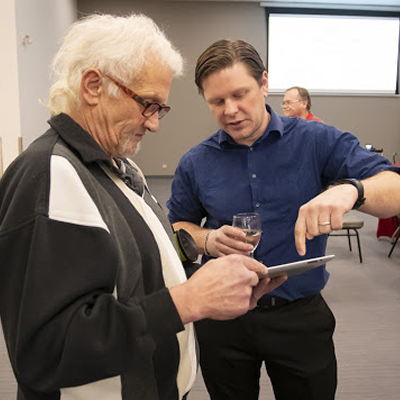Business case for Northern Gateway too compelling for it not to be built

Doug Firby is editor in chief of Troy Media and national affairs columnist.
CALGARY, AB/ Troy Media/ - The contentious Northern Gateway pipeline, which would carry oil sands bitumen to the West Coast, can and must be built, says the man widely expected to be Alberta's next premier, but the project may look a lot different than its current design.
Jim Prentice, one of three candidates for the Alberta PC leadership, told Troy Media that pipeline proponent Enbridge's re-engagement with First Nations peoples in British Columbia could lead to some significant changes in the project.
"The project as ultimately envisioned may not be identical to the project that's currently approved," he said. "There is a desire on everybody's part to listen to the concerns of First Nations, and in that to seek to improve the project."
Prentice says such changes are driven by the compelling business case for the pipeline. Failing to deliver Alberta oil to the West Coast would be economically "disastrous" for province, he said.
"We need to be aware of the consequences for Alberta if this does not happen. And I'm speaking not just about the Northern Gateway, but West Coast access generally."
Prentice says Canada needs to develop new markets beyond the U.S. for its oil.
"We are increasingly vulnerable . . . we have essentially just one customer for export. And we've paid a heavy price." Prentice noted that the price for Canadian oil is discounted, and with one buyer the country is forced to be a "price-taker" from our sole customer. When the price differential spreads, as it did a couple of years, the impact in lost revenues flowing into public finances is heavy.
A number of recent supply/demand studies have increasingly shown the continental supply of oil is saturated. As a result, Alberta is "courting disaster" if it fails to develop new markets.
"We have the highest marginal cost of production on the continent," he said, which is why since 2008 he has been advocating reduced dependency on a single customer.
"I have nothing against the Americans. They may always be our best customer. But they cannot be our only customer."
The quantity of oil reserves that Canada has, and Alberta has, over the next 50 years is so massive it will remain a key economic driver for the country. "And that will compel us to find solutions, including environmental solutions."
Prentice declined to lay blame for the public resistance to the pipeline in B.C. However, as the former federal Conservative minister of Indian Affairs, he has earned the respect of many First Nations leaders. He said whomever becomes Alberta's premier must make a concerted effort to build relationships with both Christy Clark's Liberal government in B.C. and with the First Nations affected by the pipeline.
"And there have to be relations built at the coast, to achieve a coastal partner."
To Prentice, the circumstances around the stalled Keystone XL pipeline to the southern U.S. are much different than Northern Gateway, and the potential consequences less severe. With U.S. President Barack Obama continuing to delay approval, the free market has developed other means to ship the oil - largely, by rail. "Canadian oil continues to make its way to the Gulf . . . the debate is simply about whether it will move by a pipeline."
Alberta's ruling Progressive Conservative party was forced to choose a new leader after Alison Redford resigned earlier this year, facing internal dissention and a dramatic decline in public support for the party. With the conservative Wildrose Party surging ahead in polls, whomever takes over the PC leadership faces a big job rebuilding support with disenchanted voters.
Prentice is considered a moderate Tory who would keep the provincial PCs near the centre of the political spectrum, in contrast to the further right Wildrose.
Once a federal Conservative leadership candidate, Prentice is competing with Ric McIver and Thomas Lukaszuk. Both were former provincial cabinet ministers, who resigned their positions to run for the leadership. The first round of voting is Sept. 6. Although the favoured candidates in the two previous leadership races lost out to underdogs, the party has since changed its rules to make it more difficult for similar results this time.
Doug Firby is editor in chief of Troy Media and national affairs columnist.
Troy Media Marketplace © 2014 - All Rights Reserved




